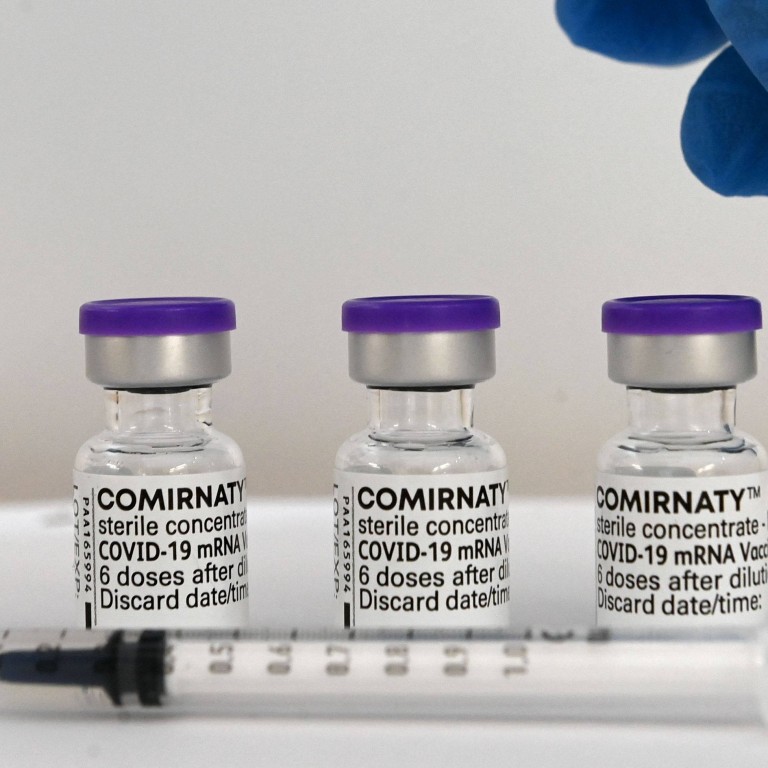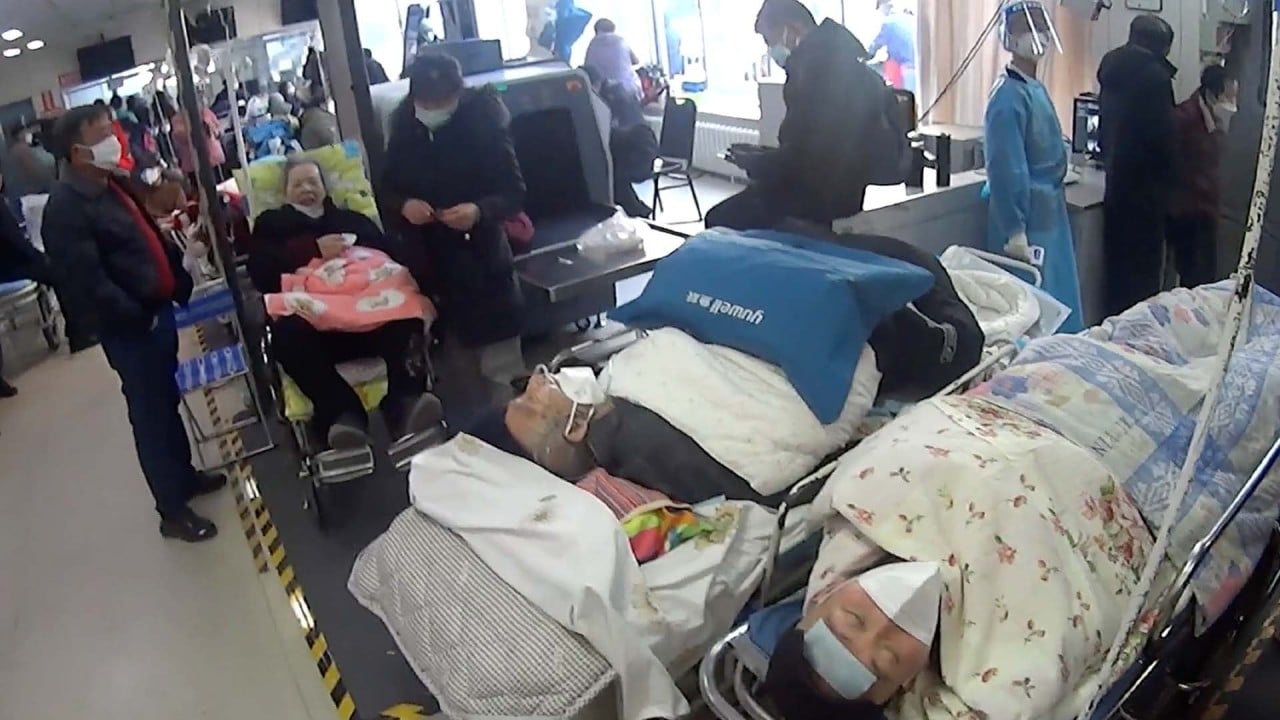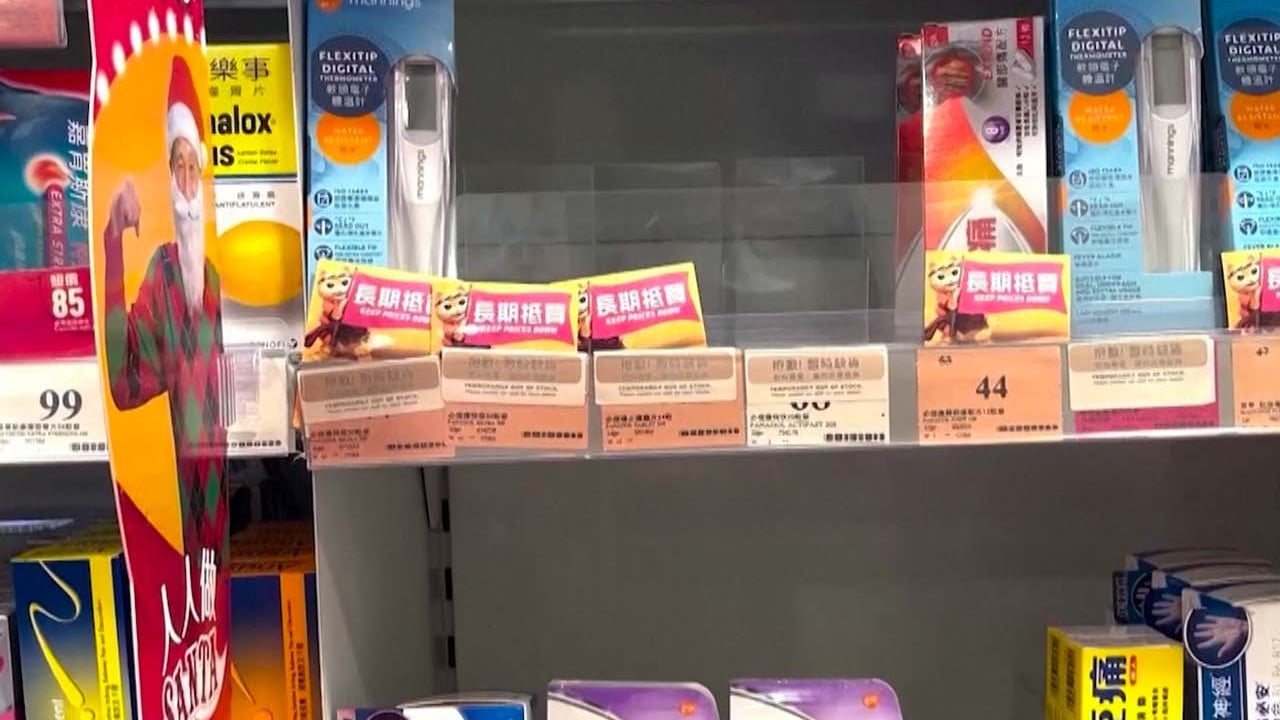
China must import mRNA vaccines to stop Covid-19 ‘disaster’, US health experts say
- As Beijing abandons zero-Covid, foreign jabs and antiviral medicine are key to limiting deaths, according to epidemiologists
- Without imported shots or strict mitigation measures, the country can expect up to 500,000 coronavirus-related deaths by April, says disease expert
China says only deaths from respiratory failure count in official Covid toll
“Ninety-eight per cent of Americans have been infected at least once with Covid-19, and this will happen in China, but it’s going to happen in a shorter time,” said Mokdad, a former senior epidemiologist with the US Centres for Disease Control and Prevention.
“The fact that it’s going to happen in shorter time means it will overwhelm the medical system and a lot of deaths will happen.”
With less stringent containment measures and higher vaccination rates, mostly with mRNA vaccines, the US and many other countries have contended with multiple waves of Covid-19 infections since the pandemic started nearly three years ago.
He called on Chinese health authorities to arrange to import mRNA vaccines made by Pfizer and BioNTech, as well as antiviral medications such as Pfizer’s Paxlovid, which are the most effective tools for limiting mortality.
China approved the use of Paxlovid in February but the amount of the medication imported and how widely it is used in hospitals remains unclear.
With a month before the start of the Lunar New Year, now is the best time to tell the public to get the vaccine to boost immunity and reduce the risk of spreading the contagion, he said.
“The only thing that China could do is to spread the infections throughout the year and not let them happen all at once, because that is a recipe for disaster.”
China orders rural hospitals to brace for Covid-19 as Lunar New Year approaches
Jumping from zero-Covid to zero restrictions has the potential to wipe out the success China achieved in the first two years of the pandemic, said Dr Jennifer Huang Bouey, an epidemiologist and specialist in China policy at the RAND Corporation.
She agreed that mRNA vaccines and antivirals, including Paxlovid and Merck’s Lagevrio, also known as molnupiravir, are key to curbing China’s Covid-19 onslaught in a significant way.
“The topic of Covid-19 and the ways in which all countries, including China, are dealing with this pandemic was on the agenda at these meetings, but I am going to refrain from getting into details of what those discussions entailed because I want to give an opportunity for us to be able to have those conversations in sensitive diplomatic channels,” Sullivan said. “We’ll see what, if anything, comes out of it.”
Chinese foreign ministry spokeswoman Mao Ning shunned the question on Wednesday when asked whether China would accept the offer. She only said booster shots were being rolled out and that medications and test supplies could generally meet demand.
“We believe … our economic and social undertakings will enter a new stage of steady and orderly growth,” she said.
Ending China’s Covid controls could lead to 1.5 million deaths, study says
She said that estimate took into account the likelihood that a sharp surge in infections would overwhelm the country’s healthcare system, leading to higher mortality among those with cancer, heart disease and other conditions.
The circulation of respiratory syncytial virus (RSV) and the flu along with Covid-19 – sometimes referred to as a “tripledemic” – could push the near-term mortality rate higher, although an overwhelmed medical system makes it difficult to track which viral respiratory ailment is killing people.
“I think the death toll … would be an astronomical number, just because the population base is huge,” she said.
Huang Bouey said China’s ability to keep Covid-19 under control – and keep its economy running – before the emergence of Omicron was a “success”.
However, that victory came with a price in the form of a looming mortality surge that could have been lowered if the country had managed to vaccinate more of its population.
“The real problem is that there was no promotion of booster shots or stockpiling of antivirals before they changed the policy,” she said. “If China says, ‘Well, we can’t do it, we reject all support’, that could be a disaster for a vulnerable population.”



